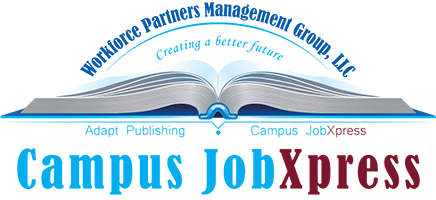
5 Foods to Eat Before Your Interview
5 Foods to Eat Before Your Interview
From Allhealthcare.com
You are what you eat, so when it comes time for your interview, what can you eat that will make you alert, calm, focused, and quick thinking? We’ve spoken to experts and done our share of research to compile a list of foods that are essential to interview success.
Remember — be sure to eat your meal at least an hour or an hour and a half before the actual interview to ensure that it’s at least partially digested so that its effects on your brain are in route. The perfect meal might look like a wild salmon and spinach egg white omelet, a side of yogurt and nuts, and a cup of coffee. How do these foods help your brain? Find out!
First Thing to Eat: Lean Protein
Though a bagel or blueberry muffin might be the easiest snacks to grab before your interview, avoid carbohydrates if you possibly can. In an MIT study with two groups eating either a high-protein or high-carbohydrate breakfast, researchers found that two hours after consumption the carb group had tryptophan levels four times higher than the protein group.
So unless you want to doze off during your interview, stick to lean proteins, like fish, white meat, or eggs. Consuming protein helps your body manufacture two chemicals made from tyrosine — norepinephrine and dopamine. These two chemicals enable the synthesis of neurotransmitters and ramp up your mental alertness.
Next: Healthy Fats
Your brain needs a healthy supply of essential fatty acids, or omega-3 fatty acids, for it to function optimally. These fats are the primary building block for brain tissue and help you stay focused, supply oxygen to the brain, protect brain cell membranes, and decrease your chances of dementia, Alzheimer’s, stroke, and other brain illnesses later in your life.
You can only get these fatty acids from food because your body doesn’t produce them naturally. So stock up on fish (especially wild salmon), nuts (especially walnuts), olive oil, avocados, and seeds (especially flax seed). Flax is also the best source of alphalinoleic, a healthy fat that enhances the performance of the cerebral cortex — where your brain processes sensory information.
Next: Whole Grains & Leafy Green Vegetables
Though recent research has found that ginkgo biloba does not improve memory, don’t worry — B vitamins, like vitamins B6, B12 and folic acid, are still proven to help your memory, focus, and overall brain health and power. Folic acid, in particular, helps produce red blood cells and improve your sense of wellbeing and mental clarity.
Whole grains, like brown rice, are a great source of B vitamins, as well as broccoli, parsley, cauliflower, and brussels sprouts. Leafy green vegetables like kale, spinach, and Swiss chard, pack in high amounts of folic acid and vitamin K, which also help your brain focus and fight off memory disorders, like dementia.
Coffee
We all know it — coffee is the one thing that can get you up and alert first thing in the morning. So unless you’re terribly sensitive to coffee, you should without a doubt have a cup before your interview. Researchers have found coffee enhances short-term memory performance and helps improve attention capacity and problem-solving skills.
But don’t overdo it! Too much coffee will not only make you a jittery, nervous wreck, but you’ll have to use the bathroom more than a few times, considering caffeine is a diuretic. This will only make the interviewer think you’re unprofessional, unprepared, and certainly not the right candidate for the job.
Next: Low-Fat Yogurt and Mixed Nuts
There’s a fine line between being super pumped for your interview and being a twitchy, anxious mess. Coffee may be your liquid energy, but yogurt can be your goopy courage. How so?
In a Slovakian study, scientists gave subjects either a placebo or three grams each of two amino acids — lysine and arginine. The researchers then asked them to deliver a speech and found that according to blood measurements of stress hormones, the amino acid subjects were half as anxious during and after the speech than the placebo subjects.
Yogurt is considered the best food source of lysine, and nuts are packed with arginine, so stock up! A great combination would be putting nuts in your yogurt — consider almonds or walnuts mixed into vanilla or plain yogurt. Fruity yogurts work too!





 Questions You Should Be Ready To Answer.
Questions You Should Be Ready To Answer.